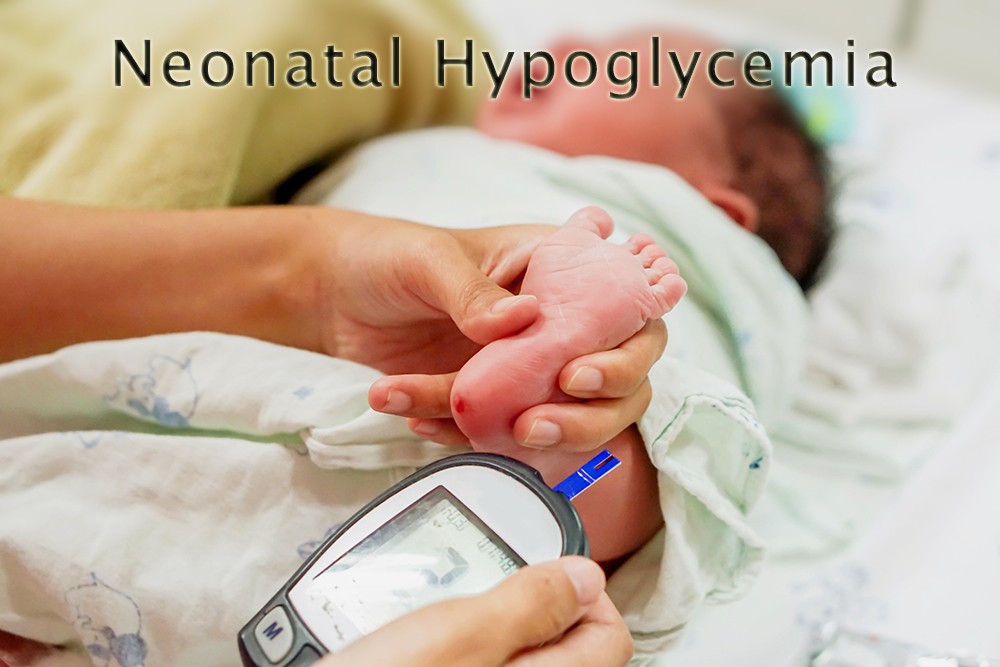What is Neonatal Hypoglycemia?
Neonatal hypoglycemia, a condition characterized by low blood sugar levels in newborns, is a critical concern in infant health. Glucose is the primary energy source for the brain, and adequate levels are vital for normal neurological development in newborns. When blood sugar drops significantly below normal levels, it can potentially affect brain function, leading to various complications.
Tip: Please fill out the form if you or a friend would like more information on glucose monitors.
Causes of Neonatal Hypoglycemia
Numerous factors contribute to neonatal hypoglycemia. Maternal health conditions, such as gestational diabetes or excessive insulin production, can significantly impact a newborn’s blood sugar levels. Additionally, infants born prematurely or with intrauterine growth restriction may have difficulties regulating glucose due to immature organ function. Other factors like birth asphyxia, sepsis, or certain medications can also disrupt glucose metabolism in newborns.
Must Read CGMs in noncritical care hospitals optimizes glycemic control
Symptoms and Signs
Recognizing the signs of neonatal hypoglycemia is crucial for prompt intervention. Symptoms may present as jitteriness, poor feeding, irritability, lethargy, seizures, or even coma in severe cases. The manifestation of these symptoms can vary widely among infants, making it essential for healthcare providers to closely monitor at-risk newborns for signs of low blood sugar levels.
Diagnosis and Screening
Healthcare providers employ various methods to diagnose neonatal hypoglycemia. Blood glucose testing via heel stick or venous sampling helps identify low sugar levels. It’s crucial for at-risk infants, including those born to diabetic mothers or premature infants, to undergo routine screenings to enable early detection and intervention.
Preventive Measures
Preventing neonatal hypoglycemia involves proactive measures during pregnancy and post-birth. Prenatal care for diabetic mothers focuses on managing blood sugar levels through diet, medication, and close monitoring. After birth, maintaining adequate feeding, especially for at-risk infants, ensures a steady supply of glucose and helps prevent dips in blood sugar levels.
Also, read about Non-Invasive Glucose Monitoring
Treatment Approaches
Immediate treatment focuses on elevating blood sugar levels in affected newborns. This may involve breastfeeding or formula feeding, administering glucose gel orally, or in severe cases, intravenous glucose administration. For infants with recurring hypoglycemia, long-term management strategies aim to stabilize blood sugar levels through consistent feeding schedules and, in some cases, medications.
Impact on Neonatal Health and Development
Untreated neonatal hypoglycemia can have severe implications for a baby’s health and development. Prolonged low blood sugar levels may lead to neurological complications, impacting cognitive development, motor skills, and overall health. Early detection and management play a pivotal role in mitigating potential long-term effects on an infant’s well-being.
Read Guide about Wegovy Dosage Guide: The Best Way For Weight Loss
Support and Care for Families
Families with newborns affected by hypoglycemia require comprehensive support. Healthcare professionals play a crucial role in guiding parents on monitoring blood sugar levels, appropriate feeding practices, and recognizing signs of hypoglycemia. Emotional support, access to resources, and collaboration with specialists are vital for families navigating this condition.
Conclusion
Understanding neonatal hypoglycemia encompasses recognizing its multifactorial causes, being vigilant about symptoms, implementing proactive preventive measures, and identifying appropriate treatment options. Early detection, intervention, and ongoing support are fundamental in ensuring the health and well-being of newborns affected by this condition.


